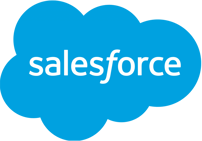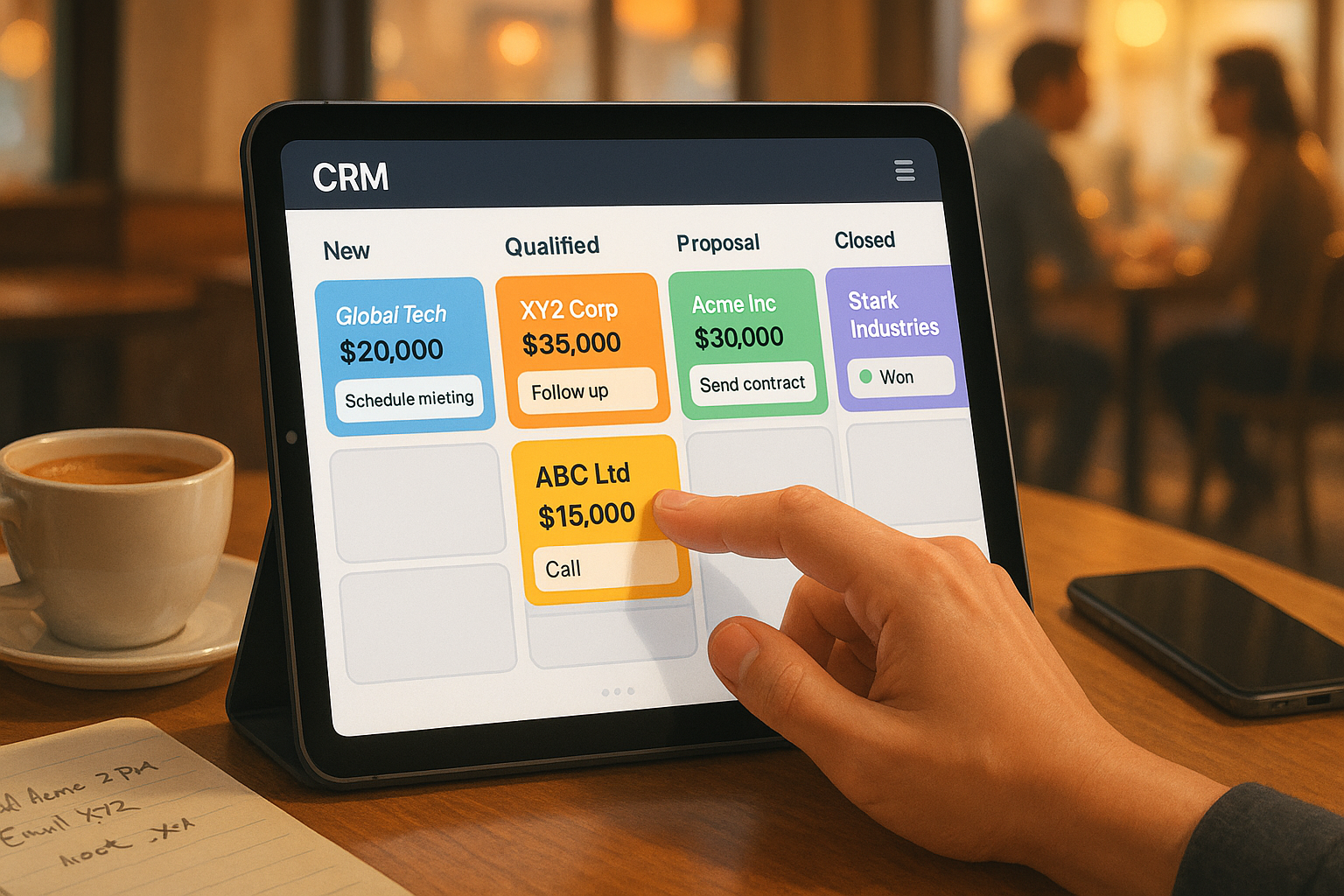What are CRM tools?
CRM tools, also known as customer relationship management tools, are essential software solutions for businesses to effectively manage and track their customer data. By storing this information in a centralized database, companies can easily access and analyze customer interactions, preferences, and behaviors. This valuable data can then be used to create targeted marketing campaigns and personalized customer experiences.
In today's competitive business landscape, CRM tools have become increasingly popular as they offer numerous benefits to companies seeking to enhance their customer relationships. Firstly, these tools provide a scalable and digital platform for managing customer interactions, allowing businesses to streamline their processes and improve efficiency. With customized dashboards and workflows, organizations can tailor the CRM system to their specific needs and automate repetitive tasks, ensuring consistent and timely communication with customers.
Moreover, CRM tools enable businesses to gain valuable insights into customer behavior and preferences. By tracking and analyzing customer interactions, businesses can identify patterns and trends, allowing them to create segments of potential customers based on their interests, demographics, and behavior patterns. This targeted approach to marketing ensures that businesses can deliver personalized and relevant content to their customers, ultimately improving customer satisfaction and loyalty.
There are several CRM tools available in the market that can revolutionize the way businesses interact with their customers.
CRM Benefits:
Customer Relationship Management (CRM) tools provide organizations with a scalable, digital platform for managing customer relationships.
The CRM systems allow users to create customized dashboards that are tailored to their organization’s needs. The CRM also provides the facility to create workflows and automatically update campaigns based on the new information received from contacts.
Some of the basic functions of these tools are:
- The ability to track and analyze customer interactions on a single system, which can be helpful in determining customers’ preferences.
- Creating workflows of all incoming and outgoing communications with customers on a single platform.
- Generating reports that can help in understanding how well an organization is performing.
Salesforce

Salesforce is the world’s largest CRM company. It helps customers manage their relationships with their customers, leads, and devices.
Main Features:
Salesforce provides social media monitoring tools and analytics to help marketers understand customer engagement on social networks. Salesforce also offers marketing CRM tools to automate repetitive tasks like sending email campaigns or creating personalized web pages for each customer.
Pros:
- Salesforce has a great deal of integrations that allow you to see all of your data in one place. It also has a low cost for its basic package and is an easy software to use.
- Salesforce provides users with a high level of data security, as well as the ability to share data with different teams.
Cons:
- There are many reports that the software is difficult to use, especially for importing or exporting data. It also takes some time to get up and running when working on projects.
- The price of the Salesforce Basic package can change at any time, which can make it difficult if you have budget restrictions set in place.
Pricing: $20 per user/month and other pricing
Insightly
Insightly is software that helps businesses succeed in their goals. It can help with customer follow-up, sales lead tracking and managing customer feedback and support. It’s easy to use for all skill levels. Insightly has great tools that make it easy to enter new contacts, set up tasks, and track sales opportunities.
Main features:
Some of the software’s main features are the ability to organize contacts, lists, and tasks in one place. Insightly also has a robust API that allows for seamless integration with other third-party apps. It is also well known for its integrations with Google Apps and Outlook.
Pros:
- It is an easy to use software
- It has an intuitive interface
Cons:
- Insightly does not have a mobile application
- The user interface can be overwhelming for new users.
Pricing: $29/user per month
ZohoCRM
Zoho is a customer relationship management software that aims to help businesses manage their contacts.
Main features:
ZohoCRM system includes managing contacts, tracking opportunities, organizing leads and tasks, and managing marketing campaigns.
Pros:
- ZohoCRM provides useful features for marketing managers such as email campaign design, lead management, and social media integration
- The software is easy to use, and the user interface is simple to navigate.
- It offers a free trial period.
Cons:
- The price of ZohoCRM starts at $25 per user per month, and it can be expensive for small businesses.
- The software doesn’t offer many integration options with third-party tools. For example, there is no direct integration with Pardot Marketing CRM tools or Salesforce Marketing Cloud.
Pricing: $15 per month
HubSpot CRM

HubSpot is a marketing CRM tools and sales platform that helps businesses create, publish, and manage content efficiently. Small businesses mainly use this software with limited resources.
Main features:
HubSpot CRM has the ability to create personalized marketing campaigns. It does this by analyzing visitor and lead information first. Then it uses this data to create emails, landing pages, and social media posts that the company can use for different purposes.
Pros:
- Powerful automation features to save time and effort.
- Provides real-time analytics on any marketing channel.
- Lets you track your progress in real-time
- Creates personalized emails for each prospect.
- Allows for five different user profiles per company account.
Cons:
- Pricey packages that scale with the number of users.
Pricing: $30 per month
Microsoft Dynamics 365
Microsoft Dynamics 365 is a suite of applications for customer engagement, sales, marketing, field service, and operations that work together to enable smarter working across your business.
Main features:
Microsoft Dynamics 365 has many features, such as customizable business processes that can be tailored to each organization; provides real-time insights into the company’s data. It also enables companies to collaborate and communicate more effectively across all business areas and provides a single source for customer data.
Pros:
- It integrates with Salesforce and QuickBooks Online
- Social Media Integration
- Automated Marketing Campaigns
Cons:
- There are some security flaws that can lead to unwanted consequences.
Pricing: Varies depending on the bundle.
Capsule CRM
Capsule CRM is an effective customer engagement and lead management software. It automates the process of managing, analyzing, and enhancing customer relationships.
Main Features:
The Capsule CRM software provides useful information for marketers like contact history, lead status, data collection through emails and webinars, as well as automated follow-up campaigns. The tool also features a dashboard that makes it easy to track marketing campaigns and see how they are performing in real-time.
Pros:
- Ability to do one-time sync and data upload
- Easy to use interface with mobile app support
- Integration with popular apps like Gmail, Outlook, Google Contacts, etc.
Cons:
- Expensive pricing plans for small businesses
- Constant updates and bugs can be a problem for some users
Pricing: $36/user per month
On our website, you can also choose a CRM for manufacturing business. We will be happy to help you!
Freshworks CRM
Freshworks CRM is a cloud-based customer relationship management software built for small businesses. It has a variety of features that help with automating tasks, keeping track of customer information, and marketing to customers.
Main features:
Freshworks CRM is simple to use and can be set up in just minutes. Its main features include lead management, sales pipeline management, contact management, and marketing automation.
Pros:
- It is free to use
- It has an attractive and simple interface
- There are many integrations with other productivity tools
- Offers a variety of features for social media marketing and social selling
- It has a built-in customer feedback widget which helps you monitor your customers’ feedback and sentiment.
Cons:
- The free plan is not very robust; it does not have some key features such as sales reports and CRM integration.
- The paid version of the service is also quite expensive.
Pricing: Plan from $29 per month
Odoo
Odoo is a business suite that integrates all the marketing CRM tools needed for a company to manage its operations. It acts as an ERP – it has modules for sales, marketing, finance, manufacturing, and human resources. It is one of the most used business software in the world, with over 2 million customers in over 160 countries. It has over 100 integrated apps in its platform and offers cloud hosting services.
Main features:
The main features of Odoo are flexible collaboration tools, cloud hosting, advanced security features, and data integration with other apps.
Pros:
- Odoo is not as costly as other CRMs; it has a user-friendly user interface and many integrations.
Cons:
- Odoo does not have an off-premise capability, it lacks integration with Xero accounting software.
Pricing: $12 per user per month
[Related Article: The Best Marketing Automation Software & Platform]

.png?width=140&height=140&name=Noah%20(1000%20x%201000%20px).png)



